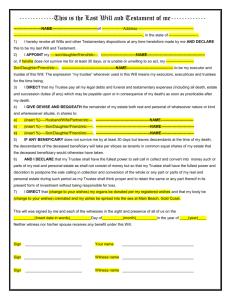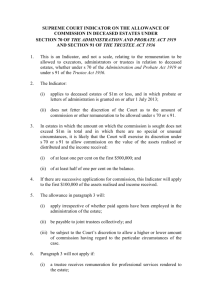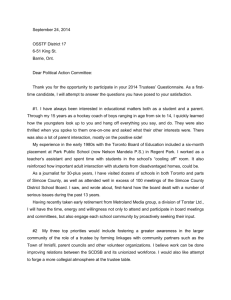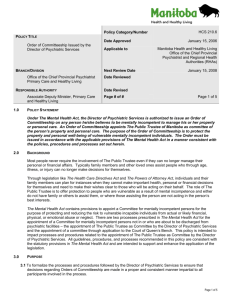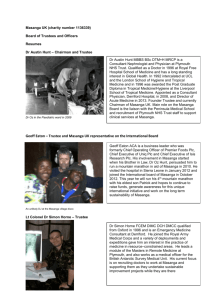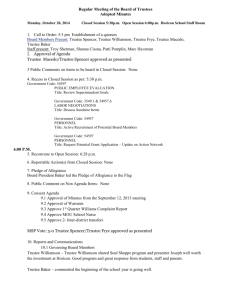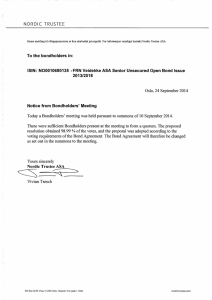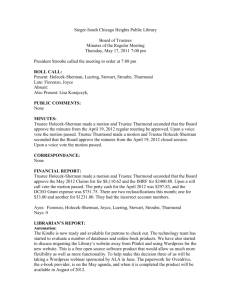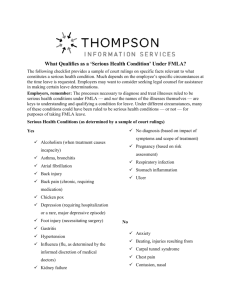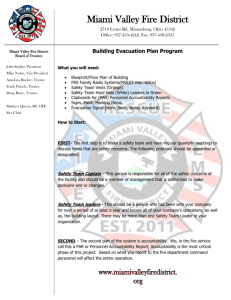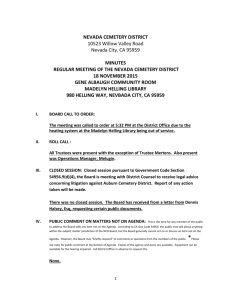Capacity - Alzheimer Manitoba
advertisement
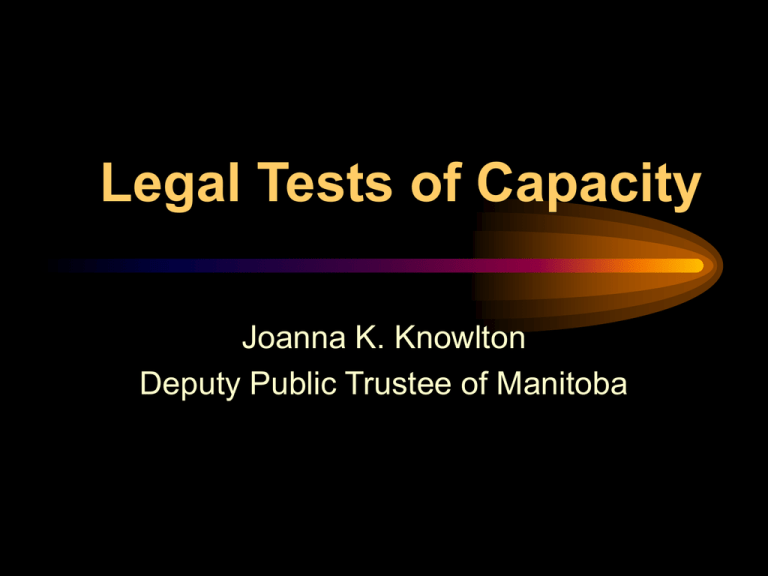
Legal Tests of Capacity Joanna K. Knowlton Deputy Public Trustee of Manitoba Capacity: What Does it Mean? • Black’s Law Dictionary: A word having many meanings, dependant on its relationship to the subject matter. Capacity: What Does it Mean? • Ability • An intelligent perception and understanding of the dispositions made of property • Sound mind • The attribute of persons which enables them to perform civil or juristic acts Capacity: What Does it Mean? Presumption of Capacity: Adults are presumed to have capacity to make decisions for themselves Capacity: What Does it Mean? Presumption of capacity is rebuttable: • Only where there is clear evidence that the person lacks the capacity to make the decision for him/herself Capacity: What Does it Mean? • Task Specific – Incapacity in one area does not necessarily mean incapacity in another; – Statutes in Manitoba deal with this differently: • Mental Health Act; • Vulnerable Persons Living with a Mental Disability Act Capacity: What Does it Mean? Level of understanding necessary varies with the complexity of the decision or transaction in question Capacity to Marry The person has the capacity to understand the nature of the contract of marriage and the duties and responsibilities it creates Capacity to Consent to Medical Treatment The Mental Health Act Does the person understand: • The condition for which treatment is proposed; • The nature and purpose of the treatment; • The risks and benefits of undergoing the treatment; • The risks and benefits of not undergoing the treatment. Capacity to Consent to Medical Treatment Does the person’s mental condition affect his /her ability to appreciate the consequences of making a treatment decision? Capacity to Consent to Medical Treatment General principles: • • Capacity should be assessed at the time the decision is required; Even if a person has a committee, may still retain capacity to consent to treatment; Capacity to Manage Property and/or Personal Care Mental Health Act A physician must consider: • The nature and severity of the person’s mental condition; • Effect of the mental condition on ability to manage property and personal care; • Nature of property and personal care requirements, and any arrangements known that were made while the person was competent; • Whether or not decisions need to be made. Capacity to Execute an Enduring Power of Attorney The Powers of Attorney Act The donor must be mentally competent to know and understand the nature and effect of the document. Capacity to Execute a Will Common Law test: Does the person: -know what he or she owns and is leaving in the will (the nature and extent of his/her bounty)? - understand and appreciate the nature of his/her obligations (who he/she would ordinarily be expected to benefit under the will)? -not suffer from any disorder or delusion that might affect the disposition? Capacity to Execute a Will • Might require a physician’s opinion as to capacity • Lawyer must also be satisfied of capacity at the time of execution • Lawyer must also consider whether person is acting of his/her own volition or whether there might have been coersion Capacity to Enter into a Contract A contract is voidable if: • A party was incapable of understanding the terms and consequences of the contract; and • The other party knew or ought to have known of the incapacity Capacity: Who Decides? • Physicians or other Health Care providers through formal assessments of capacity; • Legal counsel when assisting a person with a specific task; • Third parties who are relying on the actions of the person, or entering into a contract with them. Why is Capacity Relevant? • To determine whether a particular action or decision is binding on the person; • To determine whether a person was incapable of making the decision in question vs. making poor choices or decisions; • To determine whether someone needs assistance or a substitute decision maker for some or all decisions. Consequences of a Finding of Incapacity • Informal substitute decision making; • Reliance on pre-existing enduring power of attorney or health care directive; • Need for appointment of committee for property and/or personal care; • Appointment of Public Trustee as committee as a last resort. Procedure to Have Public Trustee Appointed as Committee • Assessment by physician; • Completion by physician of Form 21 Certificate of Incapacity; • Completion of Social History; • Form 21 and Social History forwarded to Chief Provincial Psychiatrist. Procedure to Have Public Trustee Appointed as Committee • Chief Provincial Psychiatrist reviews material; • May require further material; • Gives notice to person, nearest relative and proxy; • Considers any objections received; • May meet with interested parties, request further information. Procedure to Have Public Trustee Appointed as Committee Once Chief Provincial Psychiatrist is satisfied that: – person is incapable; and – It is in his/her best interests to appoint Public Trustee as committee Public Trustee will be appointed as committee for both property and personal care Contact Information JOANNA K. KNOWLTON Deputy Public Trustee 155 Carlton Street - Suite 500 Winnipeg MB R3C 5R9 (204) 945-2729 or 1-800-282-8069 (government switchboard) email: jknowlton@gov.mb.ca website: www.gov.mb.ca/justice/publictrustee


